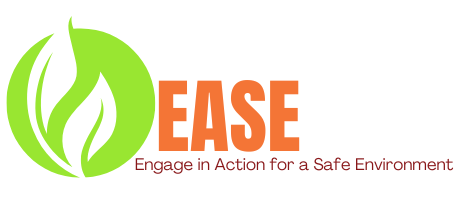Research and Innovation
Research
and Innovation
Research and Innovation
EASE Uganda is committed to evidence-based solutions that address environmental and public health challenges. Through innovative research, we aim to inform decision-making and drive sustainable progress.
Kampala TB Air Study
This study investigates how air pollution impacts the transmission of Mycobacterium tuberculosis in urban slums. Findings will guide public health actions and improve global TB control strategies.
Better Stove Study Project
This project evaluates the effectiveness of a cleaner cooking stove to reduce indoor air pollution and improve respiratory health. It aims to promote healthier cooking practices and reduce fuel dependencyReach us nowMore on the Research
Kampala TB Air Study
"We are collaborating with Rutgers University School of Public Health, Makerere University School of Public Health, Makerere Lung Institute, and Kisugu Health Centre on a groundbreaking study titled Air Pollution Effects on Transmission of Mycobacterium Tuberculosis in Urban Slum Communities in Uganda."
This study investigates how air pollution impacts the transmission of Mycobacterium tuberculosis in urban slums. Findings will guide public health actions and improve global TB control strategies. Both air pollution and TB contribute significantly to the global burden of disease, and understanding their interaction is crucial for public health.
This study examines the impact of air pollution on the transmission of Mycobacterium tuberculosis in urban slums. It explores how air pollution impacts human immunity during infection with the bacterium that causes tuberculosis (TB). Both air pollution and tuberculosis (TB) are major contributors to the global burden of disease, making it critical to understand their interaction. The findings from this research will inform public health interventions and enhance strategies for global TB control.
As a social disease, TB research spans critical areas such as public health, environmental factors, nutrition, poverty, social justice, equity, and health systems. A key unanswered question in global TB control is whether exposure to air pollution increases the risk of Mtb transmission in vulnerable communities. This includes both the potential for greater infectiousness in TB cases and increased susceptibility among their contacts.
By identifying environmental factors that influence Mtb transmission in urban populations, this research aims to provide essential data to guide public health interventions and enhance TB control strategies worldwide.
As a social disease, TB research spans critical areas such as public health, environmental factors, nutrition, poverty, social justice, equity, and health systems. A key unanswered question in global TB control is whether exposure to air pollution increases the risk of Mtb transmission in vulnerable communities. This includes both the potential for greater infectiousness in TB cases and increased susceptibility among their contacts.
By identifying environmental factors that influence Mtb transmission in urban populations, this research aims to provide essential data to guide public health interventions and enhance TB control strategies worldwide.
Better Stove Study Project
Join us as a volunteer
Join us to serve the community and transform lives

Office Location
Namuwongo, Bukasa Parish
Kireka, Kira Municipality
Email: info@easeuganda.org
